Publications
Articles, publications, books, tools and multimedia features from the U.S. Institute of Peace provide the latest news, analysis, research findings, practitioner guides and reports, all related to the conflict zones and issues that are at the center of the Institute’s work to prevent and reduce violent conflict.
Question And Answer
Blinken’s China Trip Shows Both Sides Want to Stabilize Ties
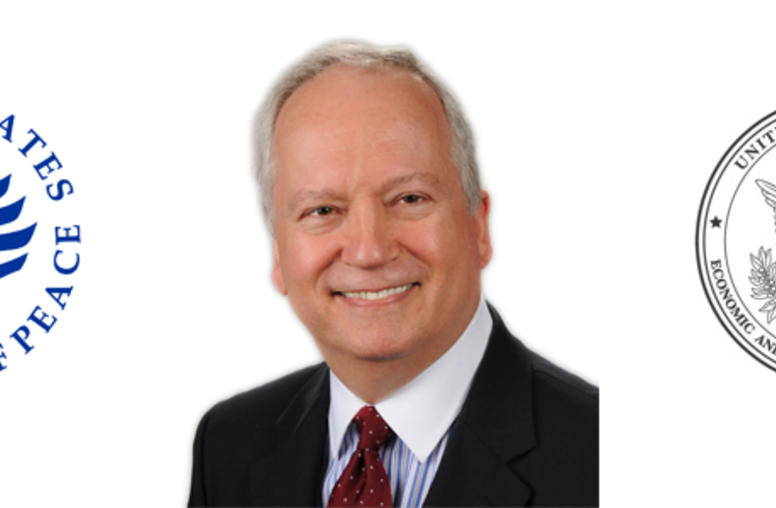
USIP Expert Bruce MacDonald Testifies on the Implications of China's Military and Civil Space Programs
USIP expert Bruce MacDonald testified on May 11, 2011 before the U.S.-China Economic and Security Review Commission on the implications of China's military and civil space programs.
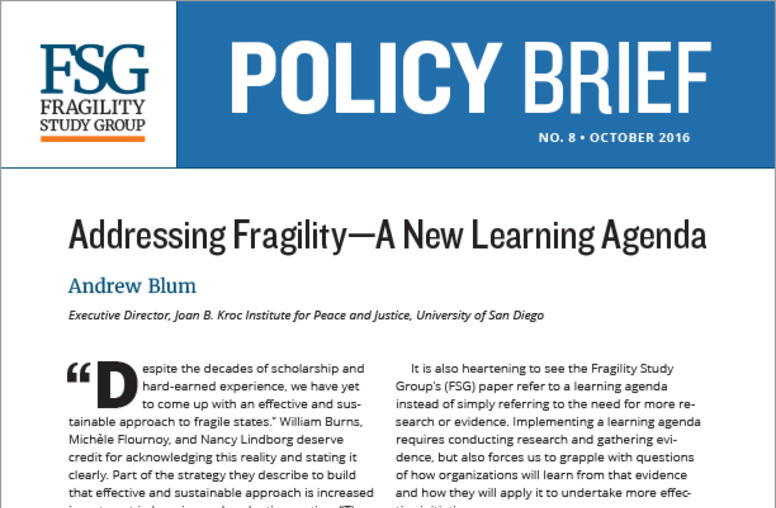
Addressing Fragility—A New Learning Agenda
The Fragility Study Group is an independent, non-partisan, effort of the Carnegie Endowment for International Peace, the Center for a New American Security and the United States Institute of Peace. The chair report of the study group, U.S. Leadership and the Challenge of State Fragility, was released on September 12. This brief is part of a series authored by scholars from the three institutions that build on the chair report to discuss the implications of fragility on existing U.S. tools, st...
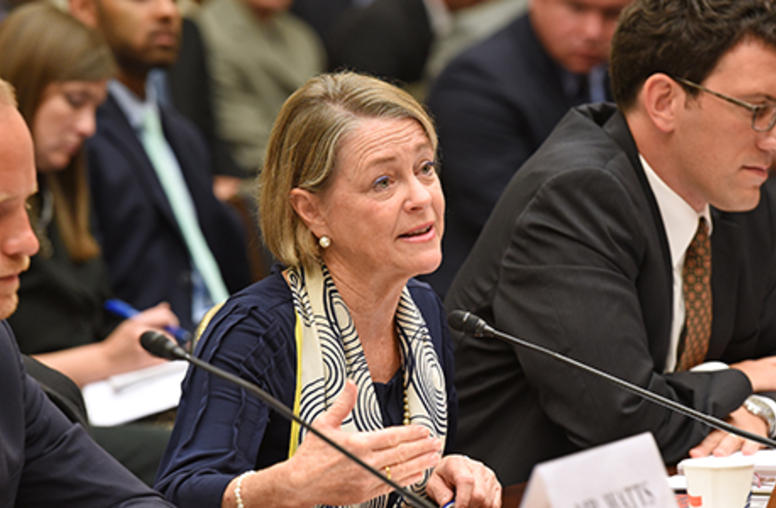
Women Under ISIS Rule: From Brutality to Recruitment
Dr. Kathleen Kuehnast, director of gender programs at the U.S. Institute of Peace, testifies before the House Foreign Affairs Committee. More from Dr. Kuehnast following her testimony, ”How ISIS Exploits Children by Manipulating Gender Dynamics."
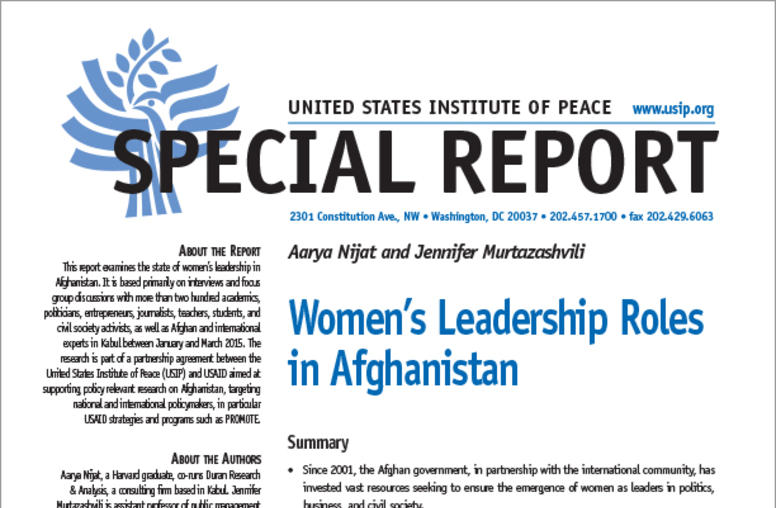
Women’s Leadership Roles in Afghanistan
In the days after September 11, the international community’s desire to “rescue” Afghan women from their social, political, and economic fate was key to mobilizing global support to topple the Taliban regime. Since then, the Afghan government and the international community have invested vast resources seeking to improve the status of women in the country, primarily through programs to support women leaders in politics, business, and civil society. Drawn on interviews and focus group discussi...
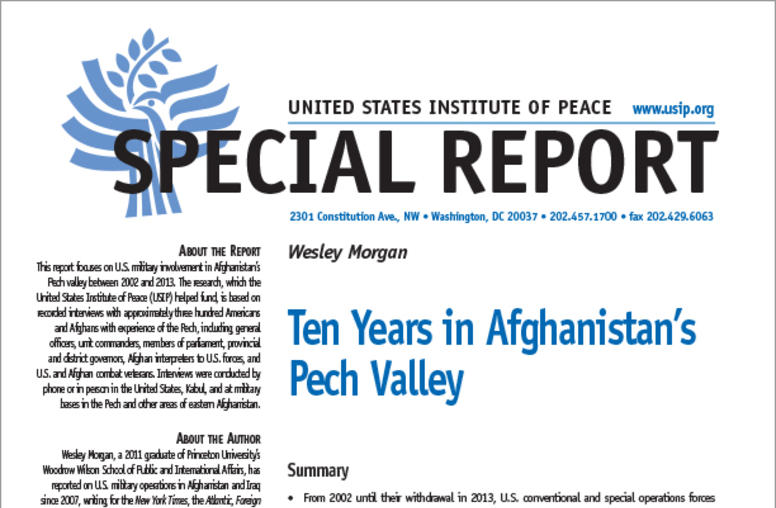
Ten Years in Afghanistan’s Pech Valley
The al-Qaeda presence in the Pech valley is greater now than when U.S. forces arrived in 2002, and counterterrorism efforts in the region continue. This report looks at U.S. military involvement in the Pech valley and the lessons it offers both the Afghan National Security Forces and the U.S. military. It is derived from interviews with some three hundred Americans and Afghans, including general officers, unit commanders, members of parliament, district and provincial governors, Afghan interp...
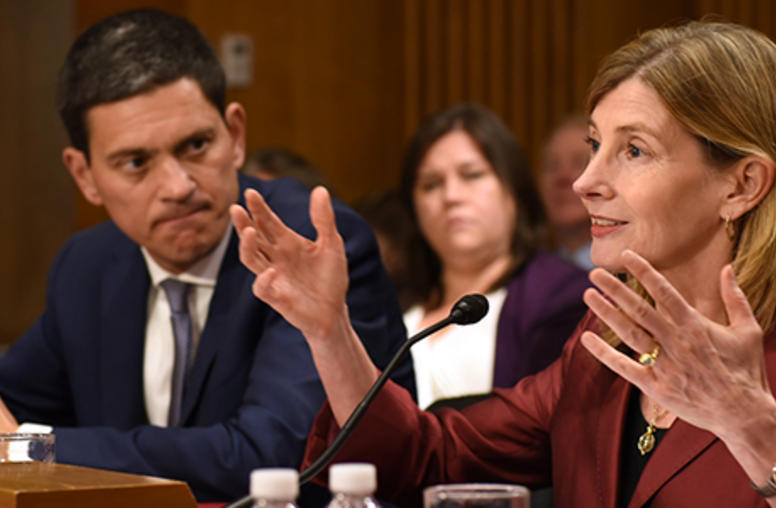
The U.S. Role and Strategy in the Middle East: The Humanitarian Crisis
USIP President, Nancy Lindborg, testifies before the U.S. Senate Committee on Foreign Relations. More from President Lindborg following her testimony, "Refugees and Social Cohesion."
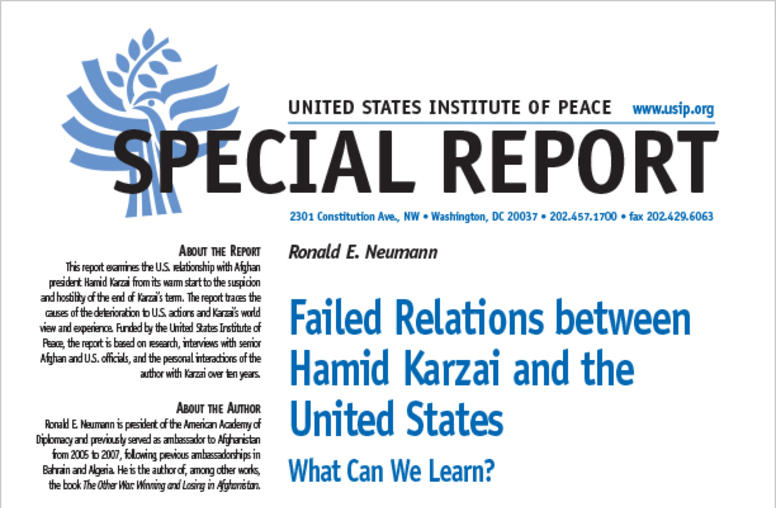
Failed Relations between Hamid Karzai and the United States: What Can We Learn?
The U.S. relationship with Afghan president Hamid Karzai deteriorated from a warm start to suspicion and hostility over the course of Karzai’s term. Intertwining personal and political considerations, this report examines how aspects of the Afghan political culture that is part of Karzai’s life experience, combined with a counterproductive U.S. approach that unnecessarily aggravated the situation, led to a downward spiral of miscommunication and mistrust that continued to the end of Karzai’s ...
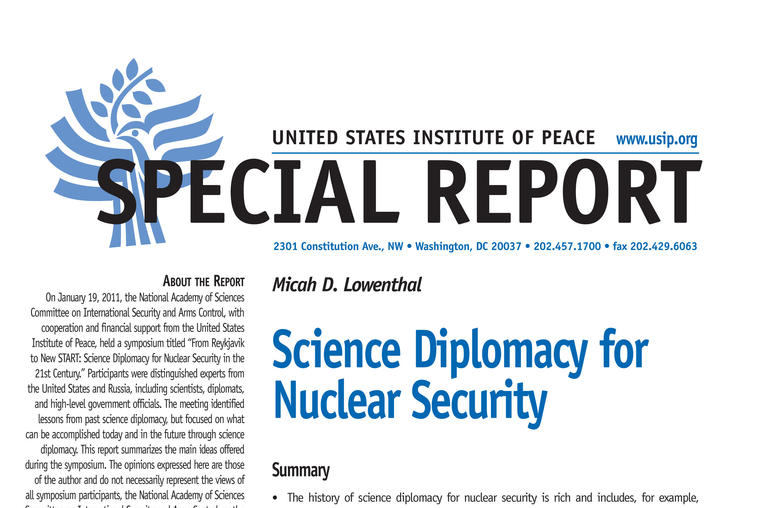
Science Diplomacy for Nuclear Security
Nuclear security expert Micah Lowenthal calls on science diplomacy, which played a key role in promoting U.S.-Soviet cooperation, to renewed engagement on current issues: nonproliferation, countering nuclear terrorism, verification of nuclear treaties, and ballistic missile defense.
Science Diplomacy for Conflict Prevention
The Center of Innovation for Science, Technology, and Peacebuilding is evaluating the potential for international scientific and technical collaborations to aid in conflict prevention and resolution.
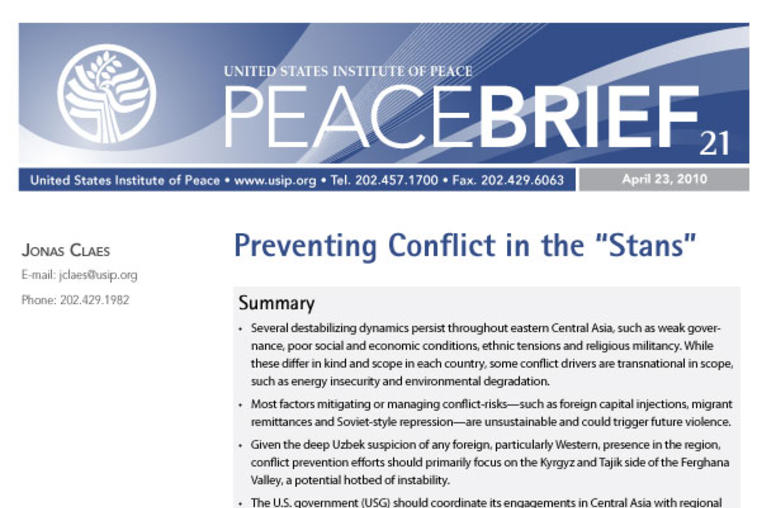
Preventing Conflict in the "Stans"
Several destabilizing dynamics persist throughout eastern Central Asia, such as weak governance, poor social and economic conditions, ethnic tensions and religious militancy. While these differ in kind and scope in each country, some conflict drivers are transnational in scope, such as energy insecurity and environmental degradation.